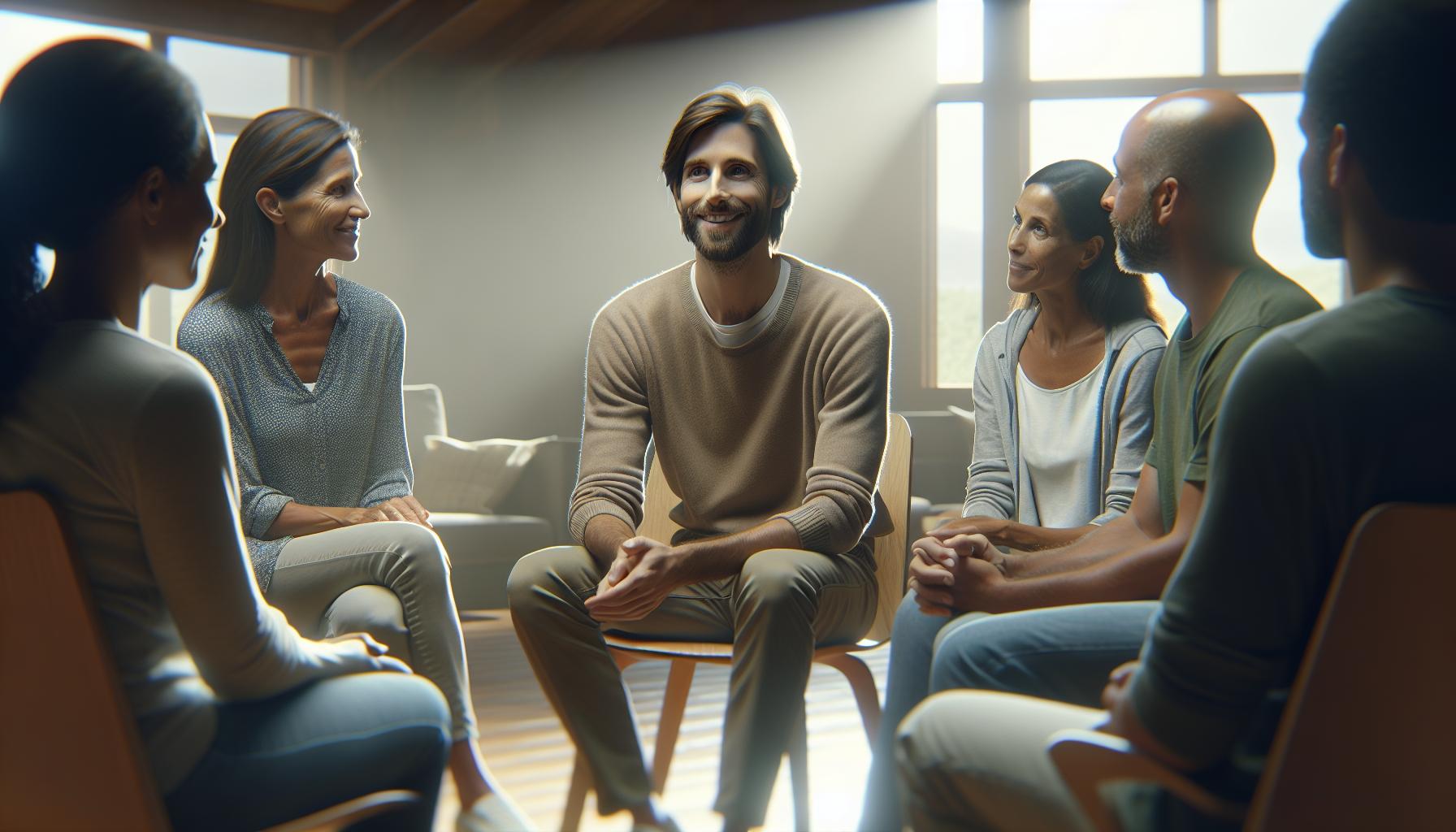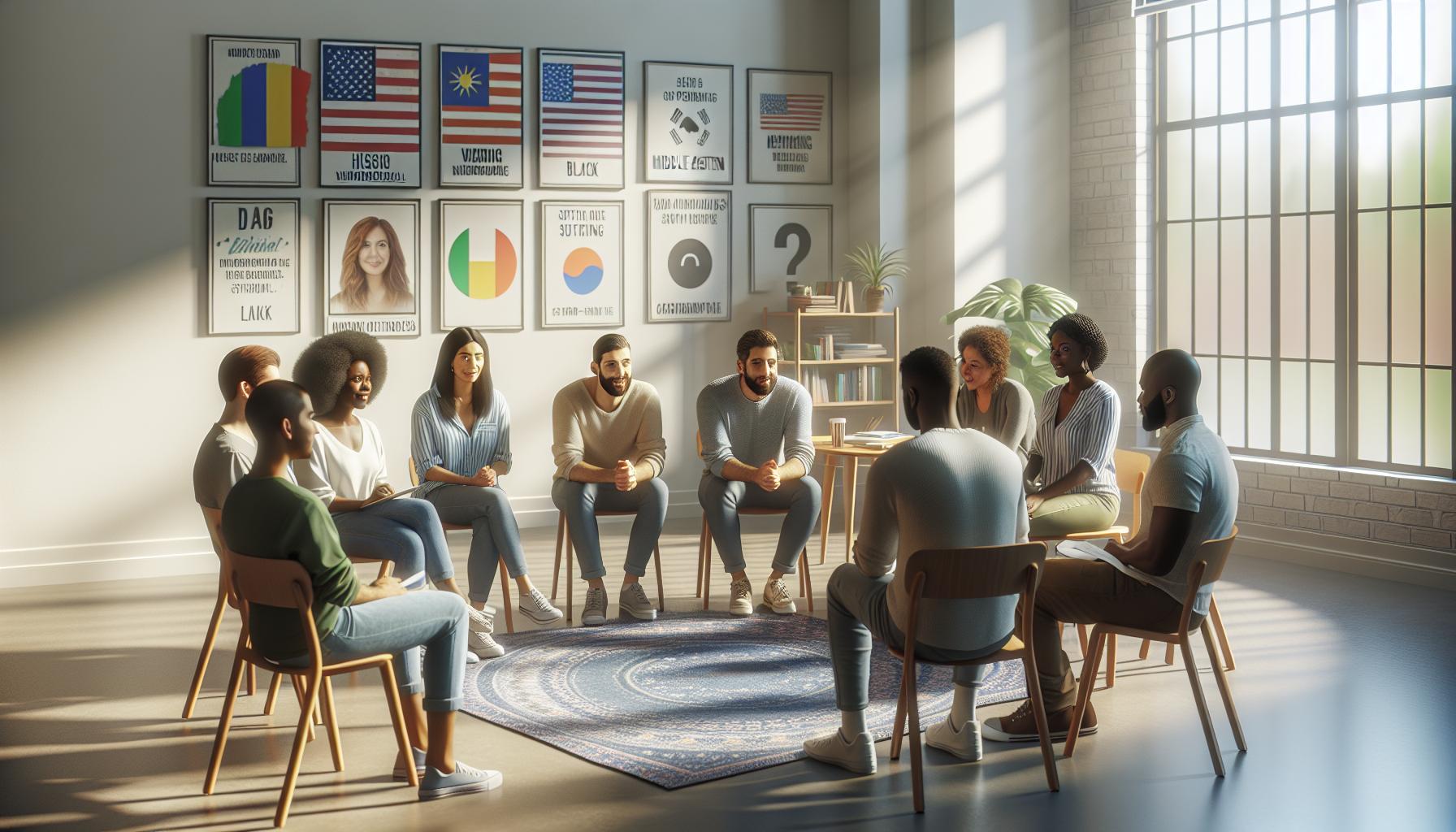Best Courses for Overcoming Trauma: Find Healing and Community Support
Life can throw some heavy challenges our way, and trauma often leaves us feeling lost and overwhelmed. I’ve been there, and I know how tough it can be to find a path forward. Thankfully, there are courses designed to help us navigate these rocky roads, offering support and tools to heal. Imagine sitting in a cozy room, surrounded by understanding faces, all eager to share their stories and learn together.
These courses aren’t just about learning; they’re a journey of discovery. Each lesson unfolds like a comforting story, revealing insights that resonate deep within us. As I explored these options, I found not just knowledge but a sense of community and hope. So, let’s dive into this world of healing together and uncover how these courses can light up the way to recovery.
Overview of Trauma
Trauma packs a punch, often knocking folks off balance and leaving them feeling lost. This emotional whirlwind can stem from various experiences—be it a car accident, a painful breakup, or living through a natural disaster. It hits hard, and its effects ripple through our lives in ways we might not immediately recognize.
I’ve seen it firsthand. Trauma manifests differently for everyone. Some folks might experience anxiety, while others struggle with depression or even physical symptoms like chronic pain. It’s like a surprise party where nobody invited you. We all react uniquely, but what ties us together is the emotional weight that can feel unbearable at times.
Let’s break it down. Trauma can really mess with our brain chemistry. When something traumatic happens, our brain releases a rush of chemicals—think cortisol and adrenaline. These are great for fight-or-flight situations but can become a problem when they linger, turning everyday moments into minefields of panic.
Recognizing trauma is the first step toward healing. Many people experience symptoms like flashbacks or trouble sleeping. I know it can feel isolating, but it’s important to realize you’re not alone. So many people walk the same rocky road. The beauty lies in the journey of healing, where courses specifically designed for recovery can offer guidance, tools, and that much-needed sense of community.
Healing isn’t a straight path; it’s more like a winding road with bumps along the way. I found that connecting with others who’ve walked similar paths makes the load a little lighter. Courses addressing trauma aren’t just lectures; they’re spaces filled with support and shared stories. They encourage growth and resilience while reminding us that brighter days are ahead.
Ultimately, trauma is a tough beast to tackle, but with the right resources and community, it’s possible to reclaim joy and peace. Let’s explore those options together, diving into all the courses available to help us navigate this journey toward healing and empowerment.
Understanding Trauma and Its Effects

Trauma can throw us off balance, making life feel like a maze with no clear exit. It can stem from all sorts of experiences—accidents, breakups, natural disasters—and affects each person differently. Recognizing that I’m not alone in feeling this way can spark a bit of hope.
Emotional Impact
Trauma doesn’t just knock the wind out of you; it can mess with your head too. Feelings of anxiety, despair, and confusion can turn everyday tasks into monumental challenges. Think about it—walking into a room full of people might feel like jumping into an ice-cold pool. My emotional rollercoaster could have me laughing one minute and crying the next, and that’s normal. Understanding this impact helps in knowing what I’m dealing with and opens the door to healing. It’s like bringing a flashlight into a dark room; I can finally see what’s around me and what I need to face.
Physical Symptoms
Trauma can also work its way into our bodies, and trust me, it’s not as fun as it sounds. Stress hormones, like cortisol, can run wild, causing headaches, stomach issues, or even fatigue that feels insurmountable. It’s wild how the brain and body communicate, almost like they’re in a never-ending argument. When I get tense or anxious, my body shows it—tight shoulders or that all-too-familiar knot in my stomach. Acknowledging these physical symptoms is crucial; they’re like my body saying, “Hey, something’s not right here.” It’s time to listen, understand, and seek support so I can find my balance again.
Types of Courses for Overcoming Trauma

Trauma can feel overwhelming, but there are courses that guide you on a lighter path toward healing. Here’s a look at some types of courses that might spark your interest.
Therapy-Based Courses
Therapy-based courses combine professional guidance with healing. You’re not just learning; you’re actively engaging in your recovery. These courses often involve licensed therapists who introduce you to techniques like cognitive-behavioral therapy (CBT) or eye movement desensitization and reprocessing (EMDR). You’ll gain insights into your thoughts and feelings, which helps reshape your emotional landscape. Imagine having a personal cheerleader ready to catch you when you trip over your trauma!
Skill-Building Workshops
Skill-building workshops are perfect for those looking to add practical tools to their healing toolkit. These courses focus on developing skills like mindfulness, stress management, and effective communication. People often report feeling empowered after picking up skills they can use daily. Picture yourself mastering relaxation techniques that help calm your mind like a warm hug after a long day. Plus, interacting with others in these settings fosters a sense of community.
Online Courses
Online courses offer flexibility for anyone. They fit seamlessly into busy schedules and allow you to learn at your own pace. Many platforms provide trauma-informed content ranging from video lectures to interactive group discussions. You can access expert advice without leaving your couch (hello, pajama therapy!). You’ll discover coping strategies and creative outlets that turn overwhelming feelings into a more manageable part of your life. It’s like inviting a supportive group right into your living room!
Exploring these courses isn’t just about learning; it’s about connecting, healing, and reclaiming your light.
Choosing the Right Course

Finding the right course for overcoming trauma can feel like searching for a needle in a haystack. Everyone’s journey is unique, and the right fit can make all the difference in healing.
Identifying Personal Needs
I start by asking myself, “What do I really need?” Reflecting on this can guide my search. Some might find comfort in therapy-based courses that offer direct support, while others might prefer skill-building workshops to learn practical techniques. Think about whether self-paced online courses fit my schedule better. Each option has its strengths.
Ultimately, identifying personal needs means being honest with myself about what’s uncomfortable and what feels safe. It’s okay to want community and connection, or to seek out tools to handle stress more effectively. Every trauma journey is personal, so I focus on what resonates with me.
Considering Course Format
When choosing a course format, I look for flexibility and accessibility. Can I attend in person, or do I need an online option that allows me to learn at my own pace? For busy lifestyles, online courses are often a smart choice. They let me dive into healing when it fits my schedule.
In-person workshops can be impactful too. They provide that immediate human connection and support that’s hard to replicate online. I consider my comfort level and what stresses me out less. Finding a course format that aligns with my needs boosts my motivation to engage in the healing process. After all, it’s about reclaiming my joy and stepping into empowerment in whichever way feels right for me.
Success Stories and Testimonials

I’ve seen firsthand how transformative these trauma courses can be. Listening to stories from others who’ve walked the path of healing makes it clear: recovery is possible, and you’re not alone.
One participant shared how the cognitive-behavioral therapy (CBT) tools from her course helped her tackle everyday challenges. “I used to feel paralyzed by anxiety,” she said. “Now, I catch those negative thoughts and flip them on their head. I’m finally living instead of just surviving.” It’s incredible to witness such a shift, isn’t it?
Another amazing story came from a guy who took a skill-building workshop focused on mindfulness. He described the moment everything clicked, “I learned to breathe my way through the chaos. Now, when stress hits, I pause and remind myself that I’ve got the tools to handle it. Who knew breathing could be a game changer?”
Online courses also deliver some uplifting testimonials. One participant mentioned, “I loved being able to learn at my own pace. The classes fit into my busy life, and I could revisit lessons whenever I needed a boost.” Flexibility can make a big difference when life gets hectic.
I remember reading about a woman who ventured into an in-person workshop. She said, “Walking into that room was like stepping into a warm hug. The sense of community was instant, and I finally felt seen.” That connection is more than just comforting; it’s healing.
It’s not all smooth sailing, of course. One participant reflected on their toughest moments in the course, saying, “Some days felt like climbing a mountain, but each step forward mattered. I learned to celebrate even the smallest victories.” That’s the spirit—each step counts, no matter how small.
As you explore these courses, you’ll find stories like these are everywhere. From realizing the power of a deep breath to forging lasting friendships, the journey of healing is filled with relatable experiences and lessons. When people share their stories, it emphasizes one undeniable truth: healing is possible, and your story could be next.
Conclusion
Finding a course to help overcome trauma can be a game changer on your healing journey. I’ve seen firsthand how these programs can foster connections and provide the tools we need to navigate our emotions. It’s all about discovering what resonates with you and taking that brave step forward.
Remember that healing isn’t a straight path. It’s okay to take your time and celebrate the small victories along the way. I truly believe that with the right support and resources, we can reclaim our joy and find our light again. So let’s explore these options together and embrace the journey toward healing.

